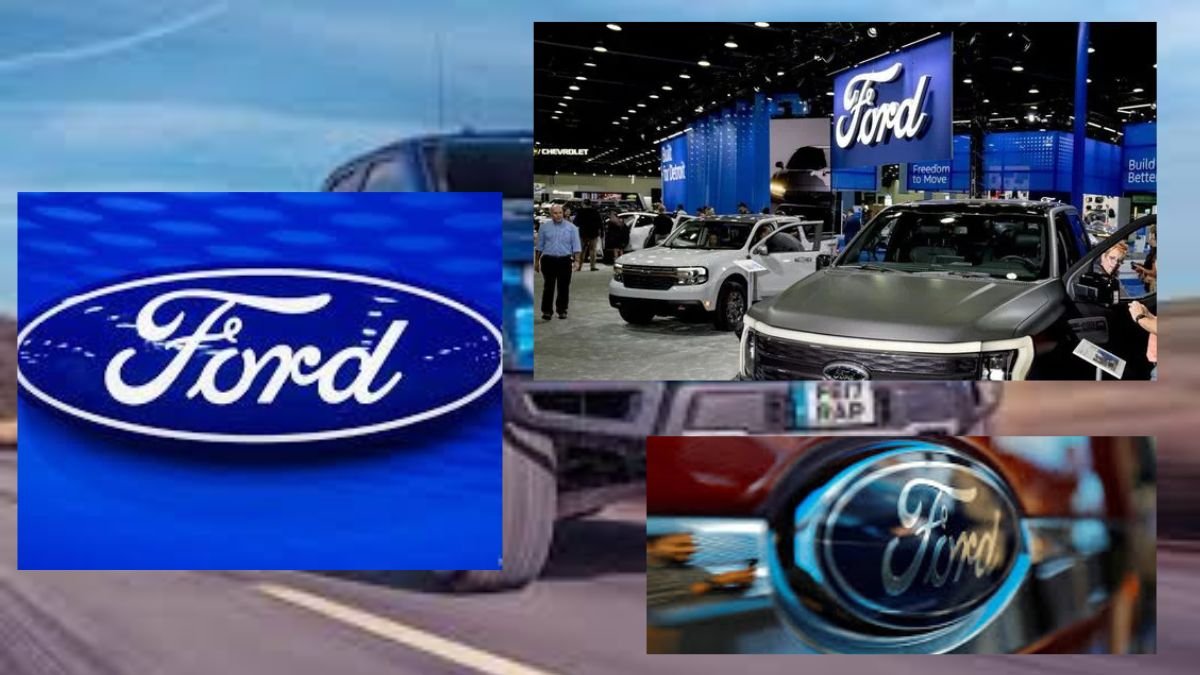Ford to Invest $2 Billion in Kentucky Plant to Build Affordable Electric Vehicles
The automaker’s Louisville assembly plant will focus on lower-cost EVs, creating or securing nearly 4,000 U.S. jobs.

Ford will invest $2 billion in its Louisville, Kentucky assembly plant to produce affordable electric vehicles, part of its broader EV strategy alongside a $3 billion Michigan battery facility.
Ford Commits $2 Billion to Kentucky Plant for Affordable EV Production
Louisville, Kentucky — August 11, 2025 — Ford Motor Company announced Monday it will invest $2 billion into its assembly plant in Louisville, Kentucky, a major step in the automaker’s push to bring affordable electric vehicles (EVs) to market.
The investment is aimed at creating or securing almost 4,000 U.S. jobs when combined with Ford’s planned $3 billion battery park in Michigan. The Kentucky facility will serve as a hub for producing lower-cost EV models that Ford says will deliver on design, innovation, space, driving pleasure, and ownership cost — all while being built by American workers.
“We took a radical approach to a very hard challenge: Create affordable vehicles that delight customers in every way that matters – design, innovation, flexibility, space, driving pleasure, and cost of ownership – and do it with American workers,” Ford said in its press release.
A New Chapter in Ford’s EV Strategy
Ford’s move reflects a strategic pivot toward affordability in the EV market. While the company has already made headlines with high-end models like the F-150 Lightning and Mustang Mach-E, it now aims to fill the entry-level EV segment, where competition is heating up.
The new Louisville investment complements the Michigan battery park, a project critical to securing domestic supply of battery cells — a key factor in reducing EV costs. By controlling more of its supply chain, Ford hopes to better manage pricing, quality, and innovation in an increasingly competitive space.
Why Affordable EVs Matter Now
Market Demand Shift
While EV sales have grown steadily in the U.S., high sticker prices have kept many buyers on the sidelines. Entry-level EVs, often priced above $40,000, remain out of reach for many households.
Ford’s new models from Louisville are expected to target the $25,000–$30,000 range, a sweet spot analysts believe could unlock mass adoption.
Federal Incentives
The move also aligns with the Inflation Reduction Act, which offers tax credits for EVs built in North America with domestically sourced batteries.
Economic Impact for Kentucky and Beyond
Ford’s Louisville Assembly Plant is already a significant employer in Kentucky. The $2 billion expansion is projected to:
- Create or secure 4,000 jobs across Kentucky and Michigan.
- Boost local supplier contracts and stimulate small-business growth.
- Attract EV-related infrastructure investments in the region, including charging networks and tech training programs.
Competition in the Affordable EV Race
Ford’s announcement comes as rivals also chase the budget EV segment:
- General Motors plans to reintroduce a new Chevy Bolt EV at a lower price point.
- Tesla has hinted at a sub-$30,000 model to capture more mainstream buyers.
- Hyundai and Kia are expanding U.S. EV production with competitive compact models.
Analysts say Ford’s advantage lies in its established U.S. manufacturing footprint and brand loyalty among American buyers.
Challenges Ahead for Ford
Battery Supply Chain Volatility
Even with the Michigan battery park, global demand for battery minerals like lithium, nickel, and cobalt could put pressure on costs.
Competition from Legacy and New Players
Traditional automakers and startups are aggressively targeting the same market segment, raising the stakes for innovation and pricing.
Consumer Education
Lower-cost EVs still require overcoming consumer concerns about range, charging speed, and battery lifespan.
Historical Perspective: Ford’s Long Game in EVs
Ford’s EV journey has been gradual but deliberate:
- 2011–2016: Focus on hybrids and plug-in hybrids (Fusion, C-Max).
- 2019: Launch of the Mustang Mach-E, signaling a shift toward all-electric models.
- 2021: F-150 Lightning introduced, becoming one of the fastest-selling EV trucks.
- 2025: Strategic expansion into affordable EVs with the Kentucky plant.
Industry experts say this multi-phase rollout mirrors Ford’s historic pattern of scaling innovations — from the Model T to the modern pickup truck market.
Global EV Trends Influencing Ford’s Move
- Europe: Tighter emissions rules and EV mandates are accelerating adoption.
- China: Aggressive subsidies and low-cost models dominate the domestic market.
- U.S.: Federal and state incentives, coupled with charging infrastructure expansion, are opening the door to mainstream EV adoption.
Analyst Commentary
“This investment signals Ford’s recognition that the EV market won’t be won at the top end alone,” said an automotive industry analyst in Detroit. “Affordability is the next frontier.”
Some analysts also note that economic uncertainty in 2025 could make budget-friendly EVs even more appealing to price-conscious consumers.
Looking Ahead: Timeline for Louisville Plant EV Rollout
- 2025 Q4 — Construction and retooling of assembly lines.
- 2026 Q2 — Pilot production begins.
- 2026 Q4 — First affordable EV models roll out to dealerships.
Investor Takeaways
- Ford’s $2 billion investment is a long-term growth play in the EV sector.
- Affordable EVs could capture new market share and strengthen Ford’s position.
- The project’s job creation will boost U.S. manufacturing credibility in the global EV race.





